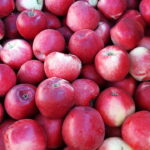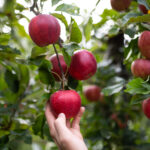Taiwan criticized for new apple residue requirements
The Taiwan Food and Drug Administration (TFDA) has come under criticism after establishing new maximum residue limits (MRL) for 11 agrochemicals used on apples, the United States Department of Agriculture reported.
Local media have attributed the regulation change to pressure from Korea, which experienced major trade complications following multiple MRL violations.
Korean apple exports to Taiwan dropped from a record US$9.6 million in 2010 to just US$3.5 million in 2011. The trade distruption prompted authorities to petition for 13 new MRLs, 11 of which had been granted as of June 2012.
Taiwanese authorities have defended the decision, saying they receive 1000s of MRL requests a year. TFDA said the change came only after careful risk assessment that considered international standards, acceptable daily intake and the Taiwanese diet.
Although standards were set months ago, the change caught media attention over the past week due to a Korean campaign to promote the country's "safer" apples.
According to the USDA, apples are the most imported and consumed fruit in Taiwan.
Despite a 2011-12 drop to the lowest point since 2004 to 118,662 tons (MT), total imports are expected to rise to 130,000 MT in the 2012-13 fiscal year.
Taiwanese customs statistics report the U.S. as the main supplier of the pome fruit to the Asian country with 42% of the market, followed by Chile with 37%. Other sellers include New Zealand with 10%, Japan with 7%, South Korea with 2% and South Africa with 1%.














































